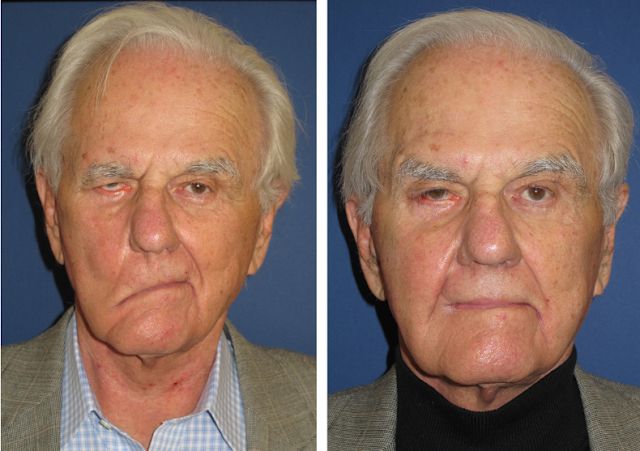04 Apr
By Admin
Facial paralysis is a condition that affects the muscles controlling facial expressions, leading to a drooping face and loss of movement on one side. This condition can occur due to various reasons such as viral infections, stroke, trauma, or nerve damage. While conventional treatments often focus on medications or surgery, Ayurvedic treatment for facial paralysis offers a natural, holistic approach to restore facial movement and promote overall healing.
In Ayurveda, facial paralysis is often referred to as “Ardita” and is considered an imbalance in the Vata dosha (the energy responsible for movement). Ayurvedic treatment aims to balance the doshas, improve blood circulation, strengthen nerves, and promote overall well-being. Here’s how Ayurveda can help in the complete recovery of facial paralysis.
1. Ayurvedic Herbs for Facial Paralysis
Herbs play a vital role in Ayurvedic treatment for facial paralysis, as they help reduce inflammation, improve circulation, and promote nerve regeneration. Some of the most commonly used herbs include:
- Ashwagandha (Withania somnifera): Known for its rejuvenating properties, Ashwagandha is used to strengthen the nervous system, reduce stress, and improve overall vitality.
- Brahmi (Bacopa monnieri): A powerful herb for the brain and nervous system, Brahmi helps enhance memory, reduces anxiety, and supports nerve regeneration.
- Turmeric (Curcuma longa): With its anti-inflammatory and antioxidant properties, turmeric aids in reducing inflammation around the facial nerve and supports healing.
- Ginger (Zingiber officinale): Known for improving circulation and reducing inflammation, ginger can help stimulate blood flow to the facial muscles, aiding in faster recovery.
These herbs are often used in the form of powders, oils, or herbal decoctions to address the underlying causes of facial paralysis and promote healing.
2. Panchakarma Therapy: Detoxification for Faster Recovery
Panchakarma is a set of therapeutic procedures in Ayurveda aimed at detoxifying the body and balancing the doshas. Specific Panchakarma treatments that may help in facial paralysis recovery include:
- Shirodhara: This therapy involves pouring warm herbal oil on the forehead, which calms the nervous system, reduces stress, and improves circulation to the face. It is particularly effective in rejuvenating the facial nerves and muscles.
- Nasya: This involves the administration of herbal oils through the nostrils. Nasya helps cleanse the sinuses, improve circulation to the facial region, and promote the healing of facial nerves.
- Abhyanga (Ayurvedic Massage): A gentle massage using herbal oils helps stimulate blood flow to the affected side of the face, relieving muscle stiffness and improving facial mobility.
These therapies help release toxins from the body, restore balance, and promote faster healing of damaged nerves.
3. Dietary Recommendations for Supporting Facial Paralysis Recovery
In Ayurveda, diet plays a crucial role in restoring health. For individuals undergoing Ayurvedic treatment for facial paralysis, consuming a balanced diet that supports nerve health is essential. Here are some dietary guidelines:
- Include nerve-nourishing foods: Foods rich in vitamins B, C, and E, such as leafy greens, citrus fruits, nuts, seeds, and avocados, can help support nerve function and healing.
- Avoid cold and dry foods: Cold and dry foods can aggravate Vata dosha, so it’s important to avoid excessive consumption of cold drinks, raw salads, and processed foods.
- Incorporate warm, moist foods: Soups, stews, and herbal teas can help balance Vata dosha and promote digestion and nourishment for the body.
- Drink herbal teas: Herbal teas made from ginger, turmeric, and Ashwagandha can help improve circulation and support healing.
By focusing on a diet that supports the nervous system, you can enhance the effectiveness of Ayurvedic treatments.
4. Yoga and Facial Exercises for Facial Paralysis
Yoga and facial exercises are an important aspect of Ayurvedic treatment for facial paralysis, as they promote muscle strength, improve blood flow, and help restore facial symmetry. Certain facial exercises and yoga poses can aid in the recovery process:
- Facial Yoga: Gentle facial exercises, such as raising the eyebrows, smiling, and puckering the lips, can help tone and strengthen the muscles of the face, promoting the restoration of facial movement.
- Pranayama (Breathing Techniques): Pranayama techniques like Anulom Vilom and Kapalbhati help improve the flow of oxygen and energy throughout the body, aiding in relaxation and nerve rejuvenation.
- Neck and Shoulder Stretches: These help relieve tension in the upper body and improve circulation to the face, which is essential for the recovery of facial paralysis.
Consistent practice of these exercises can significantly improve the motor functions of the facial muscles.
5. Lifestyle Changes for Better Recovery
Lifestyle plays a crucial role in supporting Ayurvedic treatments and ensuring long-term recovery from facial paralysis. A few changes in daily habits can help in faster healing:
- Reduce Stress: Stress exacerbates Vata dosha and slows down the healing process. Practices like meditation, deep breathing, and spending time in nature can help manage stress.
- Get Adequate Sleep: Sleep is essential for the body’s natural healing process. Ensure that you get 7-8 hours of restful sleep each night.
- Stay Active: Regular physical activity, such as walking or light exercises, helps improve circulation and overall body strength, supporting the healing of facial muscles.
Conclusion: A Holistic Approach to Healing Facial Paralysis
Ayurvedic treatment for facial paralysis offers a comprehensive and natural solution for recovery. By incorporating herbs, Panchakarma therapies, a balanced diet, facial exercises, and lifestyle changes, you can experience significant improvements in your condition. Ayurveda not only helps in the physical recovery of the facial muscles but also promotes emotional and mental well-being.
If you or a loved one is struggling with facial paralysis, consulting an experienced Ayurvedic practitioner can help create a personalized treatment plan that addresses your unique needs, leading you on the path to full recovery.


